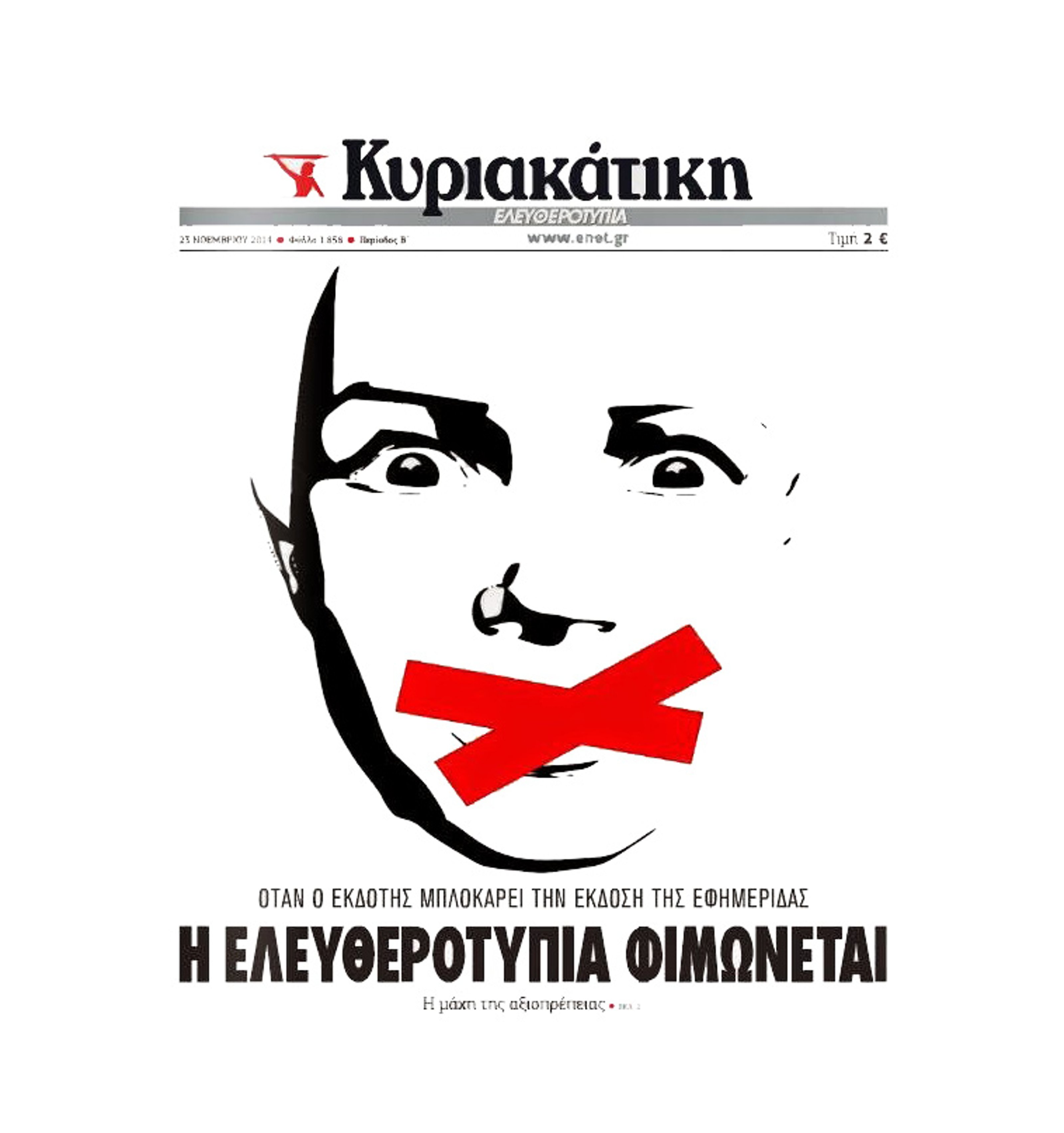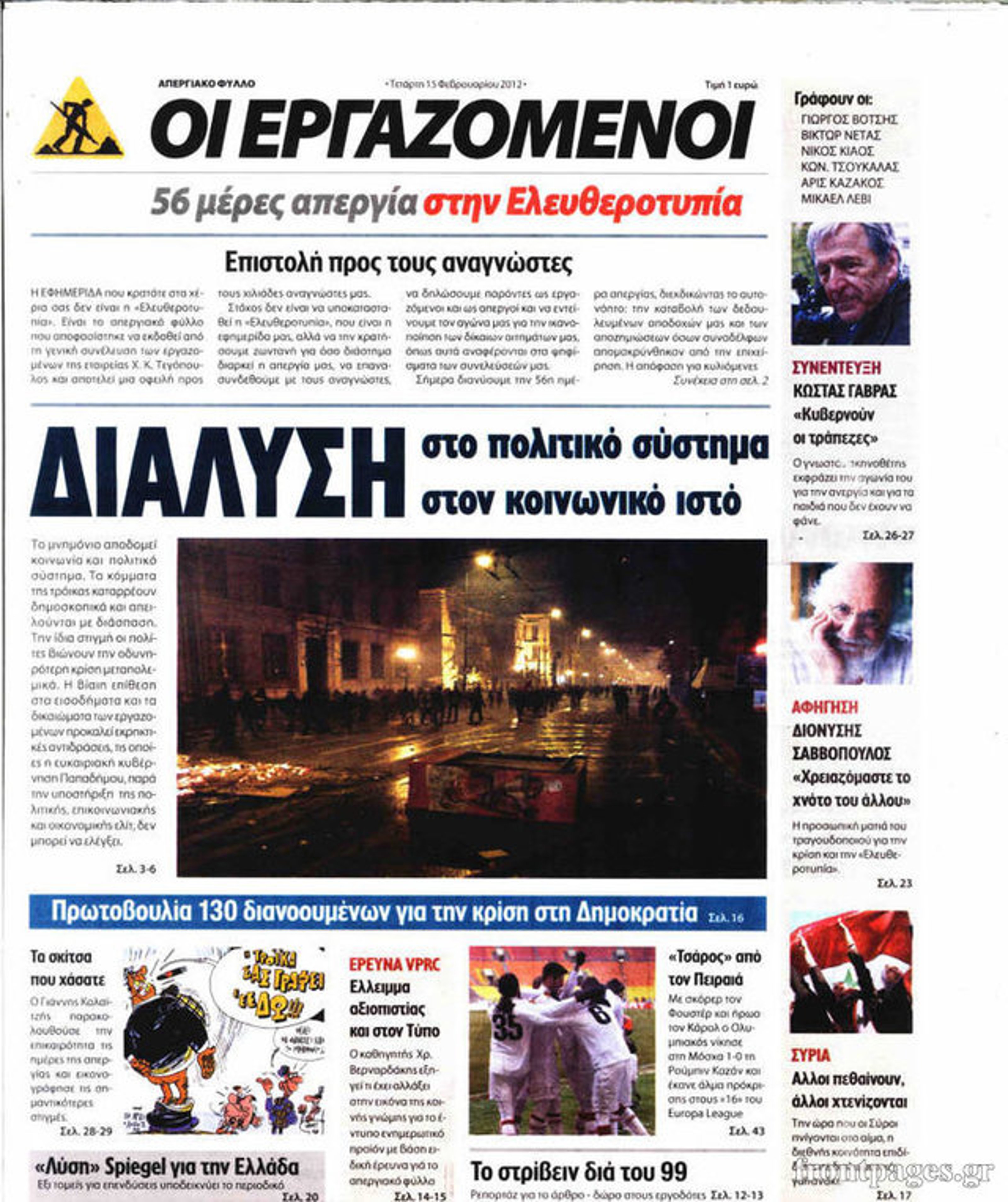In Greece in 2010, the government passed their first austerity package, in the wake of the onset of the global financial crisis.
Since then, successive governments of the right, centre-left and far left have implemented thirteen more punishing sets of austerity measures, overseen by the Troika of the European Commission, International Monetary Fund and the European Central Bank.
Against that background, workers in Greece, who already worked the longest hours in Europe, kickstarted a wave of struggles to fight the effects of the crisis and defend their conditions.
On December 22, 2011 in Athens, the workers at Eleftherotypia, Greece’s second-biggest daily paper, walked out on an indefinite strike in protest against not having been paid since August.
After several weeks, the 870 men and women working at the firm, including cleaners, journalists, print workers and more, decided collectively to launch their own, self-managed newspaper, The Workers of Eleftherotypia.
With the new paper, the strikers hoped to raise funds to finance their strike, and also give a voice to all workers fighting against austerity.

A propaganda paper in greek reading: When the editor is blocking the newspaper edition, Freedom of Printing is given

Front page of The Workers, subtitle: 56 day strike on freedom of print
When the owners of Eleftherotypia got wind of the plan they cut off heat at their office, shut down their electronic publishing system and locked out the strikers to prevent them from using any of their facilities. But in spite of this the workers still managed to get out their first issue and outsell every other paper in Greece.
To coordinate their struggle, the workers organized regular mass assemblies with 150-550 people in attendance, where they not only decided what to do, but also discussed politics and their hopes for the future.
When asked what she had learned from participating in the self-managed newspaper, one worker told an interviewer: “We are capable of making all of our decisions ourselves. We proved that we can run the newspaper without our bosses, in a democratic way. This entire experience is a new process in Greece. Before, we would vote for a trade union leadership every two years and leave all the decisions up to them. Now we know we can take our lives into our own hands.”
image caption: When the editor is blocking the newspaper edition, Freedom of Printing is given
End.
This article is part of a series of special features for the exhibition ‘1-31’ curated by Adam Carr.